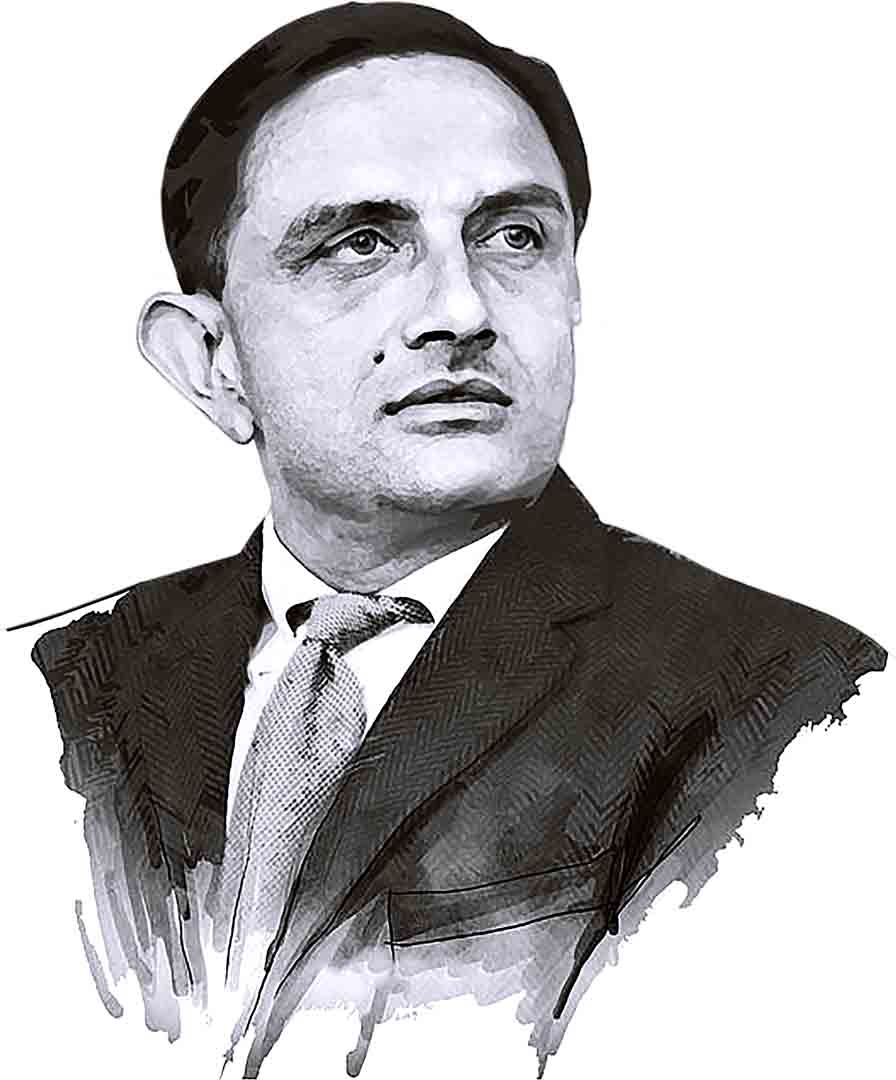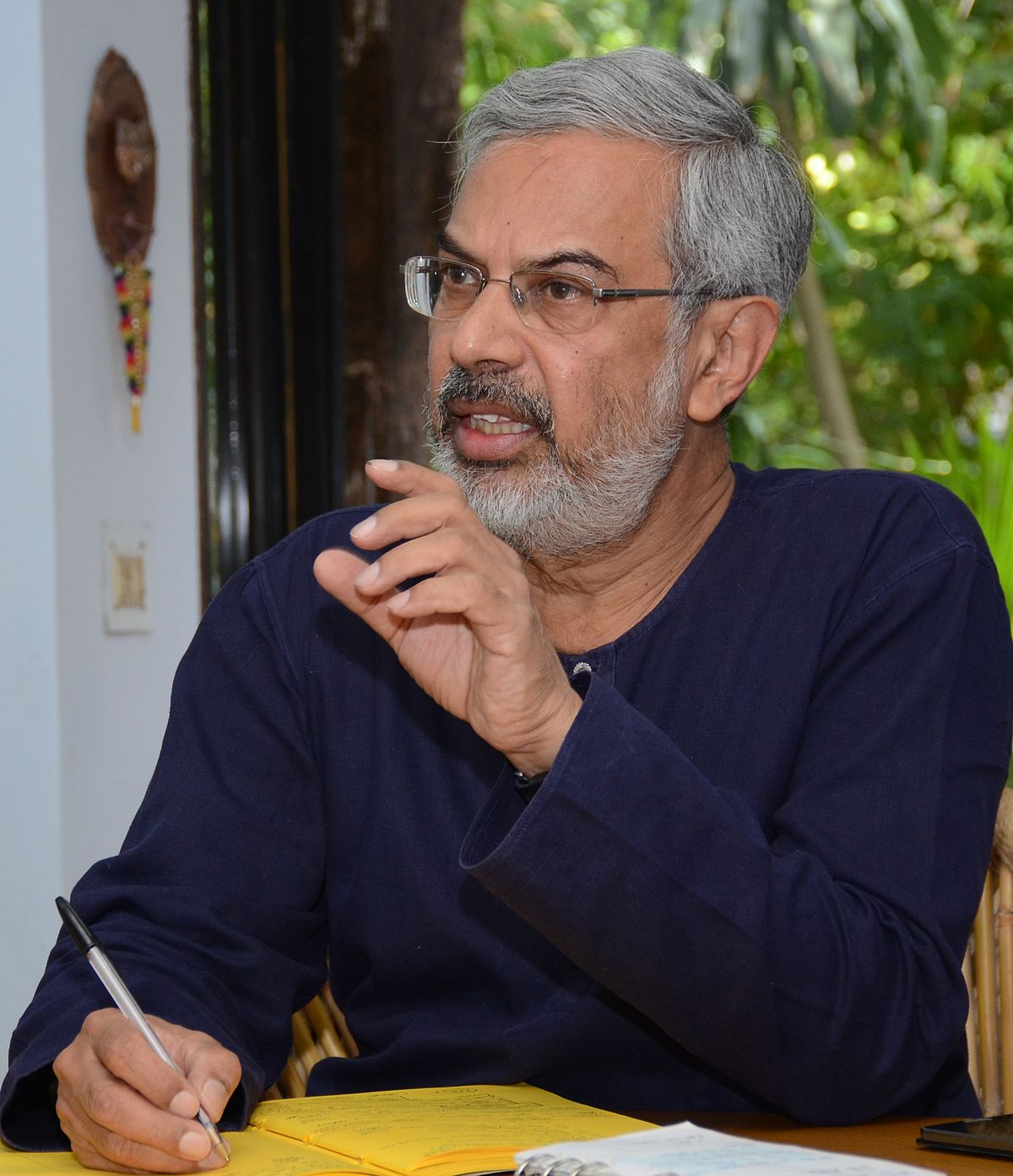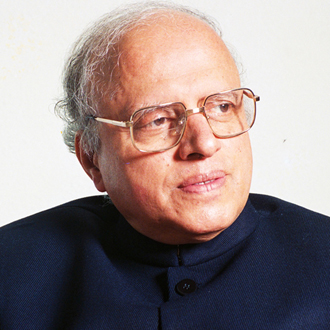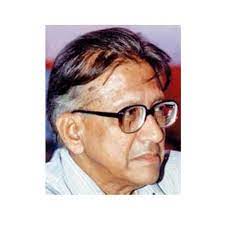Our Founder
"Basic social and economic change needs to brought about gradually and the more carefully and thoughtfully it is effected, the more permanent it will be " - Dr. Vikram Sarabhai
 Dr. Vikram Sarabhai (12 Aug 1919 - 30 Dec 1971) was a great scientist, who dedicated his life to nation-building. He established several institutions of eminence, working on a wide range of areas. He fathered India’s Space Program, contributed to the development of India’s atomic energy program and seeded the Electronics development in India. He was honoured with Padma Bhushan in 1966 and Padma Vibhushan in 1972.
Dr. Vikram Sarabhai (12 Aug 1919 - 30 Dec 1971) was a great scientist, who dedicated his life to nation-building. He established several institutions of eminence, working on a wide range of areas. He fathered India’s Space Program, contributed to the development of India’s atomic energy program and seeded the Electronics development in India. He was honoured with Padma Bhushan in 1966 and Padma Vibhushan in 1972.
The Nehru Foundation for Development (NFD) was setup in the year 1966 as a registered charitable trust by Dr. Vikram A. Sarabhai. The first area of work of NFD was to provide education in the subjects of Mathematics & Science. First, the community Science Centre was created as an activity of NFD in 1966. The objective of the Centre is to improve science education. To begin with, a facility was created where people could come together to experiment and try out new ideas and techniques for teaching science. After Dr. Vikram Sarabhai’s death in 1971, the Centre was renamed as the Vikram Sarabhai Community Science Centre.
Vikram Sarabhai Centre for Development Interaction (VIKSAT) was set up in 1977 as the second activity of NFD and initiated its programme with an urban educational project aimed at improving the environment. the Centre initiated a project on the environment. In the process of interaction with various NGOs in the development sector, VIKSAT identified the lack of horizontal communication between the voluntary agency and another. To bridge the gap, VIKSAT provided a forum for interaction among individuals and organisations involved in the efforts towards addressing the environment and development related issues in the state of Gujarat . The other NFD institutions are the Centre for Environment Education (CEE) set up in 1984, the Centre for Health Education, Training and Nutrition Awareness (CHETNA) setup in 1980 and Khamir Kachchh Heritage Art Music Information and Resources (KHAMIR) setup in 2005.
Governance
VIKSAT has been closely governed by a number of well-known national figures. Since the organization's inception, several of the leading figures in the development and other sectors have served on its Council of Members. We are grateful to our former Chairpersons for her contributions, whose vision for VIKSAT has been amply illustrated.
Timeline
| Year | Chairperson |
| 2016-2023 ( cont.) | Shri Kartikeya V. Sarabhai |
| 2000-2016 | Prof. M. S Swaminathan |
| 1993-2000 | Shri V.B.Eswaran (IAS) |
Shri Kartikeya V. Sarabhai
 Shri Kartikeya V. Sarabhai did Tripos in Natural Science from Cambridge University and did his Post Graduate Research at MIT, USA. He has varied experience in both the industrial and NGO sector. He is the Chairman of Ambalal Sarabhai Enterprises Ltd and Sarabhai Electronics Ltd.
Shri Kartikeya V. Sarabhai did Tripos in Natural Science from Cambridge University and did his Post Graduate Research at MIT, USA. He has varied experience in both the industrial and NGO sector. He is the Chairman of Ambalal Sarabhai Enterprises Ltd and Sarabhai Electronics Ltd.
He is the Founder and Director of the Centre for Environmental Education, a Centre of Excellence associated with the Ministry of Environment and Forests. He is currently the Managing Trustee of Nehru Foundation for Development, a Public Charitable Trust which runs five institutions in Gujarat including VIKSAT. He is the chairperson of the Council of Management of VIKSAT since 2016. In addition to his contribution to different committees of National and International significance, Mr. Sarabhai serves as a Governing Council Member of a number of leading educational institutions in the country. Mr. Sarabhai is a recipient of many National and International awards and he was recently awarded Padma Shri for his contribution to the field of Environmental Education.
Prof. M.S. Swaminathan
 From 2000 to 2016, Late Prof. M.S. Swaminathan served as the VIKSAT Council of Management chair. He is popularly known as the Father of the Green Revolution in India. He is the Founder Chairman, Emeritus Chairman, and Chief Mentor of the M. S. Swaminathan Research Foundation (MSSRF) in Chennai, which he founded in 1988. Prof. Swaminathan obtained a B.Sc. degree in Zoology from the Maharajas College in Thiruvananthapuram, and also in Agricultural Sciences from the Coimbatore Agricultural College. Subsequently, he received M.Sc. degree in Agricultural Sciences (specializing in genetics and plant breeding) from the Indian Agricultural Research Institute (IARI) in 1949 and Ph.D. degree from Cambridge University, UK in 1952. Dr. Swaminathan joined the faculty of IARI, New Delhi, in 1954. He became the Director of IARI (1961-72), Director General of Indian Council of Agricultural Research (ICAR) and Secretary to the Government of India, Department of Agricultural Research and Education (1972-79), Principal Secretary in the Ministry of Agriculture (1979-80), Acting Deputy Chairman and later Member (Science and Agriculture), Planning Commission (1980-82), and Director General, International Rice Research Institute, the Philippines (1982-88). A plant geneticist by training, Prof. Swaminathan has made a stellar contribution to the agricultural renaissance of India, and is widely regarded as the scientific leader of India’s green revolution movement. His advocacy of sustainable agriculture leading to an evergreen revolution makes him an acknowledged world leader in the field of sustainable food security. The International Association of Women and Development conferred on him the first international award for significant contributions to promoting the knowledge, skill, and technological empowerment of women in agriculture, and for his pioneering role in mainstreaming gender considerations in agriculture and rural development. Prof. Swaminathan has received numerous awards and honours, including the S.S. Bhatnagar Award for his contribution to biological sciences (1961), Ramon Magsaysay Award for Community Leadership in 1971, the Albert Einstein World Science Award in 1986, the first World Food Prize in 1987, the Indira Gandhi Prize for Peace, Disarmament and Development, the Franklin D. Roosevelt Four Freedoms Medal and the Mahatma Gandhi Prize of UNESCO in 2000, and the Lal Bahadur Shastri National Award in 2007. Prof. Swaminathan is a proud recipient of some of India’s highest honours including Padma Shri (1967), Padma Bhushan (1972) and Padma Vibhushan (1989). He is a Fellow of many of the leading scientific academies of India and the world, including the Royal Society of London and the US National Academy of Sciences. He has received 81 honorary doctorate degrees from universities around the world. He was a Member of the Parliament of India (Rajya Sabha) for the period 2007-13. He also chairs the Task Force set up by the Ministry of External Affairs to oversee the projects undertaken in Afghanistan and Myanmar in the field of agriculture and was elected the “Living Legend of the International Union of Nutrition Sciences” at the 20th International Congress of Nutrition held in Granada, Spain.
From 2000 to 2016, Late Prof. M.S. Swaminathan served as the VIKSAT Council of Management chair. He is popularly known as the Father of the Green Revolution in India. He is the Founder Chairman, Emeritus Chairman, and Chief Mentor of the M. S. Swaminathan Research Foundation (MSSRF) in Chennai, which he founded in 1988. Prof. Swaminathan obtained a B.Sc. degree in Zoology from the Maharajas College in Thiruvananthapuram, and also in Agricultural Sciences from the Coimbatore Agricultural College. Subsequently, he received M.Sc. degree in Agricultural Sciences (specializing in genetics and plant breeding) from the Indian Agricultural Research Institute (IARI) in 1949 and Ph.D. degree from Cambridge University, UK in 1952. Dr. Swaminathan joined the faculty of IARI, New Delhi, in 1954. He became the Director of IARI (1961-72), Director General of Indian Council of Agricultural Research (ICAR) and Secretary to the Government of India, Department of Agricultural Research and Education (1972-79), Principal Secretary in the Ministry of Agriculture (1979-80), Acting Deputy Chairman and later Member (Science and Agriculture), Planning Commission (1980-82), and Director General, International Rice Research Institute, the Philippines (1982-88). A plant geneticist by training, Prof. Swaminathan has made a stellar contribution to the agricultural renaissance of India, and is widely regarded as the scientific leader of India’s green revolution movement. His advocacy of sustainable agriculture leading to an evergreen revolution makes him an acknowledged world leader in the field of sustainable food security. The International Association of Women and Development conferred on him the first international award for significant contributions to promoting the knowledge, skill, and technological empowerment of women in agriculture, and for his pioneering role in mainstreaming gender considerations in agriculture and rural development. Prof. Swaminathan has received numerous awards and honours, including the S.S. Bhatnagar Award for his contribution to biological sciences (1961), Ramon Magsaysay Award for Community Leadership in 1971, the Albert Einstein World Science Award in 1986, the first World Food Prize in 1987, the Indira Gandhi Prize for Peace, Disarmament and Development, the Franklin D. Roosevelt Four Freedoms Medal and the Mahatma Gandhi Prize of UNESCO in 2000, and the Lal Bahadur Shastri National Award in 2007. Prof. Swaminathan is a proud recipient of some of India’s highest honours including Padma Shri (1967), Padma Bhushan (1972) and Padma Vibhushan (1989). He is a Fellow of many of the leading scientific academies of India and the world, including the Royal Society of London and the US National Academy of Sciences. He has received 81 honorary doctorate degrees from universities around the world. He was a Member of the Parliament of India (Rajya Sabha) for the period 2007-13. He also chairs the Task Force set up by the Ministry of External Affairs to oversee the projects undertaken in Afghanistan and Myanmar in the field of agriculture and was elected the “Living Legend of the International Union of Nutrition Sciences” at the 20th International Congress of Nutrition held in Granada, Spain.
Shri V.B. Eswaran
From 1993 to 2000, Late Shri V.B. Eswaran served as the VIKSAT Council of Management chair. He belonged to the Indian Administrative Services (IAS), which is connected to the country's ecological and environmental movement. He contributed to society in the fields of wastelands development, energy conservation, the creation of sustainable water resources, and forest ecosystems.
In addition to serving as an advisor to the Ministry of Environment, Forests, and Climate Change, Shri Eswaran made a substantial contribution to the development of India's watersheds, the preservation of its forests, and the creation of ecosystem services.